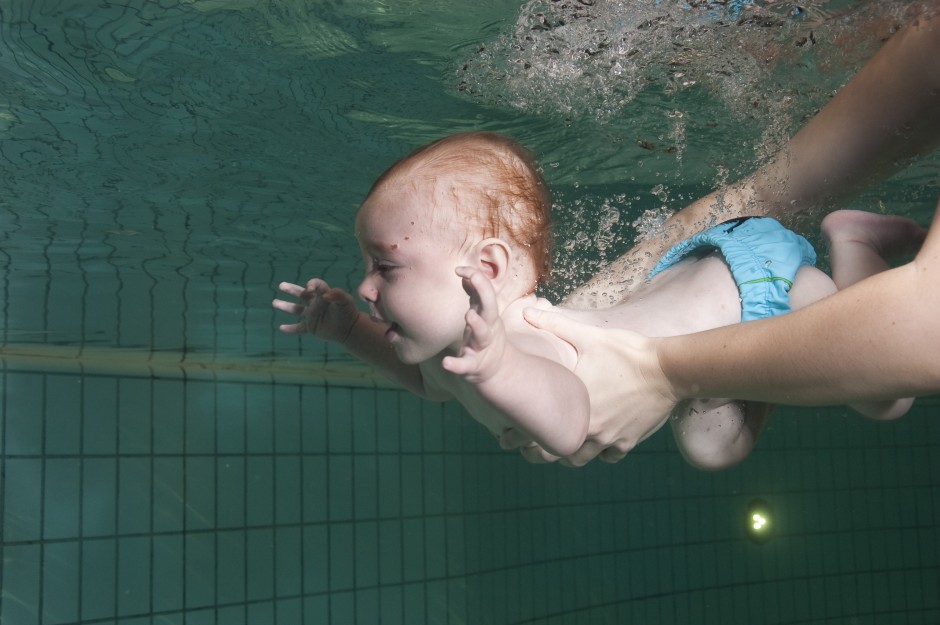
Scenario #1:
Your toddler is learning to swim. He doesn’t quite have it down yet, but is on the right path to moving himself successfully through the water. He goes under water, bobs back to the top, and emerges with a surprised look on his face. Nine times out of ten, he will look at you for how he should respond to this.
What is the most important thing for you to do in this scenario?
Well, it’s all about your reaction.
There is nothing more important at this point.
Well, of course, you’re going to make sure that your toddler’s head stays above the water, but what’s next?
Remember that your response is a model for the toddler. If you panic, your toddler will panic. If you laugh and cheer, so will he.
You must be composed!
Treat your toddler as if he’s accomplished something amazing and brave and you’re proud of him. Applaud and cheer like he’s just been elected president and he will follow your lead.As k him questions that will keep up the excitement:
- You just did something awesome. What was it? or
- Do you know what you just did that makes me so proud of you?
Repeat your questions a few times because repetition is the best way for a toddler to learn information or a task.
Your toddler will likely repeat what he did to the next person he sees. He’s now proud too.
Your excitement and composure – and lack of panic – is his model that there is no need for him to panic.
Confidence is an important part of learning to swim. If he feels like panic is the proper response to going under water, he will never progress in swimming for fear of going under water.
If the reason your toddler went underwater was disobeying a safety rule, it’s important to reinforce water safety. This doesn’t have to be negative or scolding, but a simple explanation of why water safety is important and what he did to break the rule.
Scenario #2:
Perhaps your toddler who is learning to swim, falls in or jumps in the water unexpectedly. Instead of letting panic takeover, compose yourself once again and count to three after the toddler’s head goes under. Watch as you’re counting to see if the toddler is kicking his feet and moving his hands – as he is being taught in his swim lessons. As soon as you get to three, pull your toddler up and (just as before) applaud and cheer like they just did the coolest trick in the world.
Ask the toddler what he did and excitedly congratulate him for kicking and paddling like he has been learning in his swimming lessons. Be sure he knows what he did.
Repeat the questions excitedly and have them repeat what they did pack to you and they will remember what they did!
Regardless of the scenario, the important thing to remember is that a toddler will mimic the adult’s temperament. If you’re cool and having fun, the toddler will be too. But if you panic, so will the toddler. Keep your cool.


Conversations